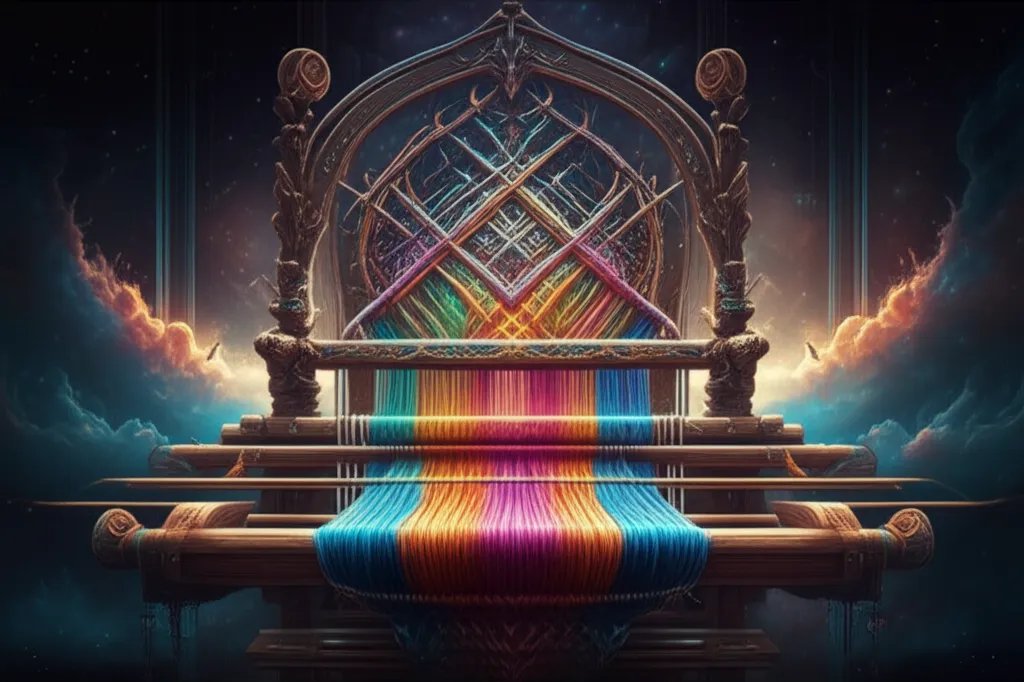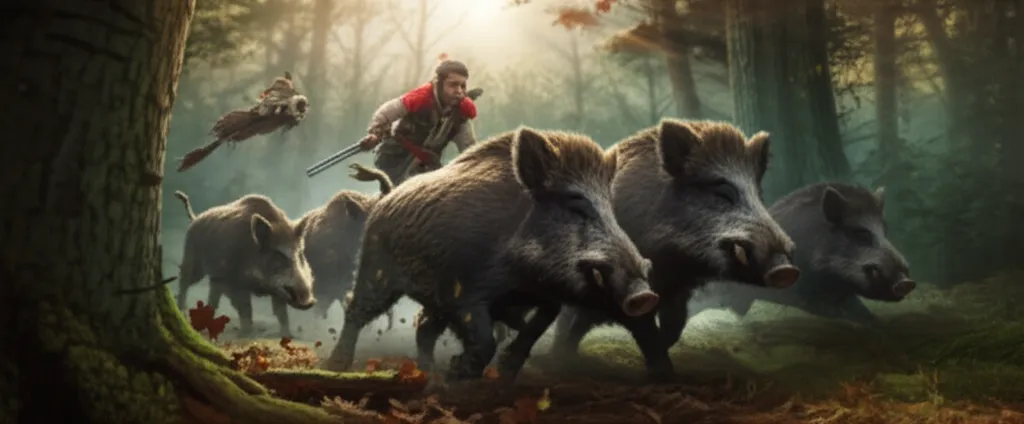I never thought a late-night bonfire with friends would remind me of an ancient Greek tragedy—until I heard someone ask, 'What if your life depended on a burning log?' That split-second flashback to high school mythology class is probably what made me tell Meleager's story (and yes, dramatize it way too much). Whether you’re a sucker for epic quests or just wrestling with the idea of destiny versus control, this myth will get under your skin.
Destiny Has a Thread Count: The Fates Set the Terms
In Greek mythology, destiny is not a vague idea—it’s a thread, spun, measured, and cut by the Fates. If you’ve ever wondered how much control you really have over your own story, the tale of Prince Meleager and the Fates will make you think twice. The Fates in Greek mythology—known as the Moirai—are the ultimate weavers of fate. Their prophecy is law, and not even heroes or queens can escape their design.
The Fates: Weavers of Every Mortal’s Life
Imagine three shadowy goddesses appearing in the night, holding the power to decide everything about your life. That’s exactly what happened to Queen Althaea, mother of Meleager, on the night of his birth. The Fates—Clotho, Lachesis, and Atropos—arrived with a prophecy that would shape her son’s destiny. In the words of ancient storytellers:
Clotho spun the thread of birth, Lachesis measured its length, and Atropos cut it with her shears, marking the moment of death.
Clotho, the spinner, begins your story. Lachesis, the measurer, decides how long your thread will be. Atropos, the cutter, ends it. This is not just a poetic image; it’s the very heart of The Fates in Greek Mythology. Every life, from the mightiest hero to the humblest villager, is subject to their will.
Prince Meleager and the Fates: A Life Tied to a Burning Log
When Meleager was born, the Fates gave a chilling prophecy: his life would last only as long as a certain log burned in the family hearth. Queen Althaea, driven by maternal love—a force celebrated in many Greek myths—snatched the log from the fire and hid it away, hoping to outsmart destiny itself. For years, Meleager grew strong, never knowing that his fate was locked away in secret.
But here’s the lesson: in Greek mythology, Fates’ prophecy is never so easily avoided. The Moirai (see Moirai - Wikipedia) do not make idle threats. Their terms are final. Althaea’s desperate act to protect her son only delayed the inevitable—and set the stage for greater tragedy. When Meleager’s actions later led to the death of his uncles, Althaea’s grief and anger burned hotter than any fire. In a moment of rage and heartbreak, she threw the log back into the flames, sealing her son’s fate with her own hands.
How Maternal Love and Fate Collide in Greek Myths
Althaea’s story is a powerful example of maternal love fate Greek myths. Her love for Meleager was so strong that she tried to rewrite the rules set by the Fates. But in Greek mythology, even the deepest love cannot undo a prophecy. In fact, the very attempt to control fate can create the disaster you fear most. Althaea’s intervention preserved Meleager’s life—until her own actions, driven by pain and love, made the prophecy come true.
- Clotho spins the thread—your beginning.
- Lachesis measures it—your journey, your choices, your time.
- Atropos cuts it—your ending, whenever and however it comes.
It’s a pattern that repeats throughout Greek mythology. The Fates set the terms, and mortals—no matter how clever or brave—must live within those boundaries. The story of Prince Meleager and the Fates is a reminder that destiny, in these ancient tales, has a thread count. You can try to hide the log, change the prophecy, or bargain with the gods, but the Moirai always have the final say.
What Does This Mean for You?
If you see your own life as a thread, spun and measured by hands beyond your control, you’re not alone. The lessons of Meleager, Althaea, and the Fates invite you to reflect on the balance between choice and destiny. In the world of Greek mythology, the Fates’ prophecy is not just a story—it’s a challenge to accept the terms of your own thread, and to live bravely, knowing that every moment is precious, measured, and ultimately, finite.

Hunt Like a Legend: Outrunning Boars and Breaking Molds
Imagine a world where monsters aren’t just stories—they’re real, and they threaten everything you love. That’s the world Prince Meleager faced when the monstrous boar, a mythological creature of legend, descended on Calydon. This wasn’t just any wild animal. The Calydonian boar was a supernatural menace, sent by the Goddess of the Hunt herself as divine punishment for a forgotten sacrifice. Fields were torn apart, people lived in fear, and the land cried out for a hero—or maybe, a team of them.
Assembling the Ancient Avengers
You don’t hunt a lightning-flinging, field-destroying beast alone. Meleager knew this. So, he gathered the best warriors in Greece, forming a team that would make even modern superheroes jealous. There was Castor, famed for his horsemanship, and his brother Pollux, a legendary fist-fighter. There was Jason, leader of the Argonauts, and Theseus, the slayer of the Minotaur. But among these icons, one name stood out: Atalanta, the legendary huntress.
- Castor: Master of horses, swift in battle
- Pollux: Unmatched in hand-to-hand combat
- Jason: Renowned for his leadership and courage
- Atalanta: The outsider, a woman in a man’s world, but the fiercest of them all
Meleager’s choice to include Atalanta was bold. Many of his men objected. Could a woman truly stand among heroes? Meleager silenced them, confident in Atalanta’s strength and skill. He led his small army into the ravaged countryside, following the hounds toward the boar’s lair. The stage was set for a hunt that would become legend.
Atalanta: The Outsider Who Changed the Game
Atalanta’s story is one of courage, destiny, and breaking molds. Abandoned by her father for not being a son, she was raised by a bear and later by hunters. She grew into a force of nature—fierce wrestler, swift runner, and lethal hunter. As the myth says:
'Ata Atlanta became a fierce wrestler, swift runner, and lethal hunter.'
She was the ultimate underdog, a woman in a world that tried to keep her out. But Atalanta didn’t just keep up—she led. Her presence on the Calydonian boar hunt wasn’t just about skill. It was a challenge to every expectation, every tradition that said only men could be heroes. She was proof that courage and greatness know no gender.
The Boar: More Than a Monster
The Calydonian boar wasn’t just a beast; it was a symbol. Sent by the Goddess of the Hunt as punishment for human pride and neglect, it represented the destructive power of divine retribution—a recurring theme in mythology. Facing the boar meant facing fate itself. Every hero on that hunt was tested, but none more than Atalanta.
Destiny, Courage, and the Power of the Underdog
When the hunt began, Atalanta’s arrow was the first to strike true. In that moment, she proved that outsiders and underdogs can change the course of destiny. Her victory wasn’t just personal—it was a statement. Even when the establishment resists, even when tradition says “no,” courage breaks through.
- Atalanta legendary huntress: Her skills and bravery redefined heroism in the Calydonian boar hunt.
- Calydonian boar hunt: A test of destiny, courage, and the power of mythological creatures.
- Goddess of the Hunt: Her punishment reminds us that pride and oversight have consequences.
- Themes of destiny, courage, mythology: Atalanta’s story inspires you to break molds and outrun your own “boars.”
In the wild woods of Calydon, legends weren’t just born—they were remade. The hunt for the monstrous boar became more than a battle. It was a lesson: when you step up, when you break the mold, you don’t just hunt monsters—you become a legend yourself.

Family Fires and the Cost of Rage: Fate’s Final Word
When you look at the heart of Greek mythology, you find more than monsters and magic. You find stories about families, pride, and the heavy hand of fate. The tale of Meleager, his uncles, and his mother Althaea is a powerful example of how quickly love can turn to anger, and how the consequences of pride and rage can echo far beyond a single moment. This is not just a story about heroes and prophecies; it’s about the cost of letting anger rule, and the tragic price a family can pay when fate and emotion collide.
After the great Calydonian Boar Hunt, the heroes gathered to celebrate. Atalanta, the swift huntress, had drawn first blood and deserved the prize. But Meleager’s uncles, driven by pride and old ideas about honor, could not accept that a woman should receive such glory. They snatched the prize from Atalanta, shattering the fragile peace among the hunters. In that instant, Meleager’s temper flared. He could not stand the injustice done to Atalanta, nor the disrespect shown to him by his own family. Before his mind cleared, he had killed his uncles in a fit of rage—a moment’s anger that would change everything.
This is where the true cost of family conflict in mythology reveals itself. Meleager’s actions were not just about pride or justice; they were about the tangled web of love, loyalty, and resentment that binds every family. The consequences of pride in mythology are often swift and severe, and here, Meleager’s tragic prophecy began to unfold. His mother, Queen Althaea, had once been told that her son’s life was tied to a single log. As long as the log remained unburned, Meleager would live. She had hidden it away, hoping to protect her son from fate.
But fate, in Greek myth, is never so easily avoided. When Althaea learned that her son had killed her brothers, her relief at his safe return turned to unbearable grief and then to rage. The pain of losing her brothers at her own son’s hand was too much to bear. In a moment of heartbreak and fury, she tore through the palace, found the hidden log, and cast it into the flames. The prophecy was fulfilled, not by a distant god, but by a mother’s own hand—driven by love, loss, and the inescapable pull of destiny.
“All at once, Mel was engulfed by a strange agony that would haunt his last fated moments.”
Here, the themes of destiny and courage in mythology come together in their most human form. Meleager’s courage in defending Atalanta was real, but so was his failure to control his rage. Althaea’s love for her son was deep, but so was her grief for her brothers. In the end, fate’s final word was spoken not by the gods, but by the choices made in the heat of family conflict. The burning log, the mother’s hand, and the hero’s agony all remind you that the most powerful forces in mythology are not always monsters or magic, but the emotions that live in every heart.
As you reflect on Meleager’s tragic prophecy and the cost of rage, remember that Greek myths are not just old stories—they are lessons about the dangers of pride, the pain of family conflict, and the courage it takes to face destiny. When love, resentment, and fate tangle, the results can be both inspiring and heartbreaking. In your own life, you may never face a burning log or a prophecy, but you will face moments where anger, pride, and family collide. Let the story of Meleager remind you: a single moment of rage can change everything, and sometimes, the hardest battles are fought not against monsters, but within your own heart.




